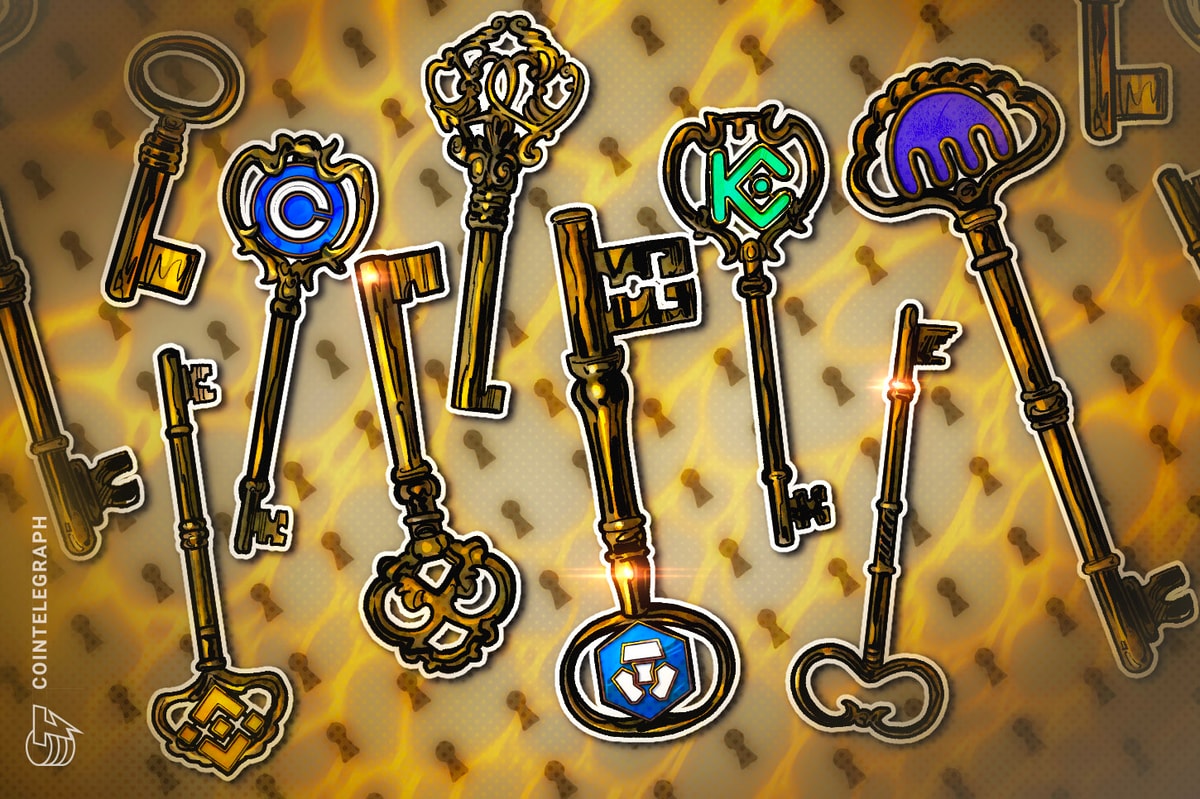Exchanges should introduce decentralized finance to their centralized models to protect their customers and restore confidence in cryptocurrency.
Collect this article as an NFT
The business model that cryptocurrency exchanges currently use relies on ignorance and fear.
It relies on their customers not knowing much about decentralized finance (DeFi) and their fear of what could happen if they get things wrong with their crypto investments.
Cryptocurrencies seem like an obscure and risky investment to most, and unsurprisingly, concerns about losing assets in market crashes, losing wallets or security keys through carelessness, or being scammed by unscrupulous operators are prevalent. These concerns are reasonable considering the volatility of the market and the prevalence of sharks, crooks, bluffers and shysters who operate in the industry.
In theory, exchanges exist to assuage these concerns. They exist to mitigate that risk for your average retail investors, who are given a safety mechanism to hedge against losing their savings. This model has enabled exchanges to grow at an exponential rate in recent years and to create vast fortunes in the process.
However, it would be remiss of those who run crypto exchanges to assume that the current level of ignorance and the fear it engenders will remain in perpetuity. Customers are learning more all the time; they are becoming far savvier. The next generation is learning about crypto in a number of different ways, such as through market trends such as GameFi and nonfungible tokens (NFTs). As adoption spreads, the knowledge of the average customer increases accordingly. This, in turn, makes them less reliant on exchanges.
Related: FTX illustrated why banks need to take over cryptocurrency
Many customers will also have been spooked by stories about disgraced crypto entrepreneur Sam Bankman-Fried, who masterminded the implosion of FTX. In light of this, exchanges do not seem like such a safe and secure option after all. It is likely that a combination of these factors will accelerate a trend toward customers wanting more control over their crypto assets, and if exchanges want to avoid risking being cut out completely, they need to embrace this.
That is why exchanges — if they want to survive, if they want to avoid their own downfall — should lean into this trend, instead of fighting against it. To do this, they must empower their customers and trust them with their own money and security keys.
That is not to say that this will be simple or easy. Understandably, there are technical and educational constraints when giving security keys back to customers. If a customer loses their security keys, the likelihood of them being able to access their assets ever again is pretty much zero.
Exchanges also have a technological challenge. Their entire infrastructure is centralized, which is ironic, to say the least. It is not entirely in keeping with the spirit of decentralized finance. There are some good reasons for this.
Uniswap, the ecosystem for DeFi apps, is decentralized, taking only a small fee per transaction. However, this comes at a price. Uniswap is unregulated, which means pretty much anyone can create a scam token and perform a rug pull. This is why exchanges do their best due diligence on projects — it’s to ensure that this kind of thing doesn’t happen.
Related: What to expect from crypto the year after FTX
But there are ways in which centralized exchanges could implement more decentralized methods without falling into some of the pitfalls. It is possible to create a kind of hybrid — to get the best of both worlds.
Retail investors and the average exchange users quite understandably don’t want to buy a token that could be a rug pull. But they also want the safety of knowing that their crypto can be accessed at any time. However, the price of ownership and assuming control of the assets means taking on the requisite responsibility, which, in turn, necessitates the requisite level of education. Exchanges that are considering the future of crypto need to understand this.
Critically they need to understand that the sooner customers become educated on crypto, the sooner they’ll find themselves on a direct pathway to complete decentralization. Therefore, I would call on exchanges to take the decentralized way forward by creating a hybrid system that protects customers as well as their own brands.
History is littered with examples of corporate giants that failed to adapt and paid the price. Blockbuster was an arrogant behemoth that never thought streaming would be a thing; today, it is dead. Money is the same. It’s not your money if the bank owns it; it’s not your crypto if an exchange holds it. Freedom comes from letting go of the fear of responsibility.
Companies, like living organisms, have to adapt to changing environments in order to survive. It’s clear that customers want to be able to fully control their digital assets. If exchanges don’t embrace this trend, they may just embrace their own destruction.
This article is for general information purposes and is not intended to be and should not be taken as legal or investment advice. The views, thoughts and opinions expressed here are the author’s alone and do not necessarily reflect or represent the views and opinions of Cointelegraph.
Author
Administraroot

